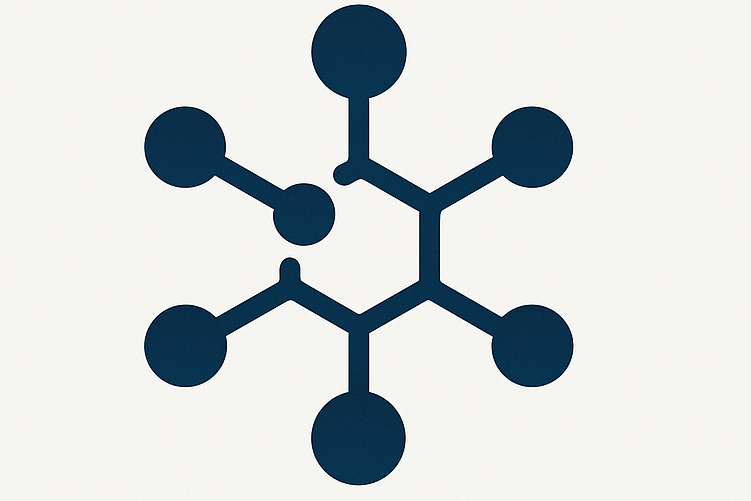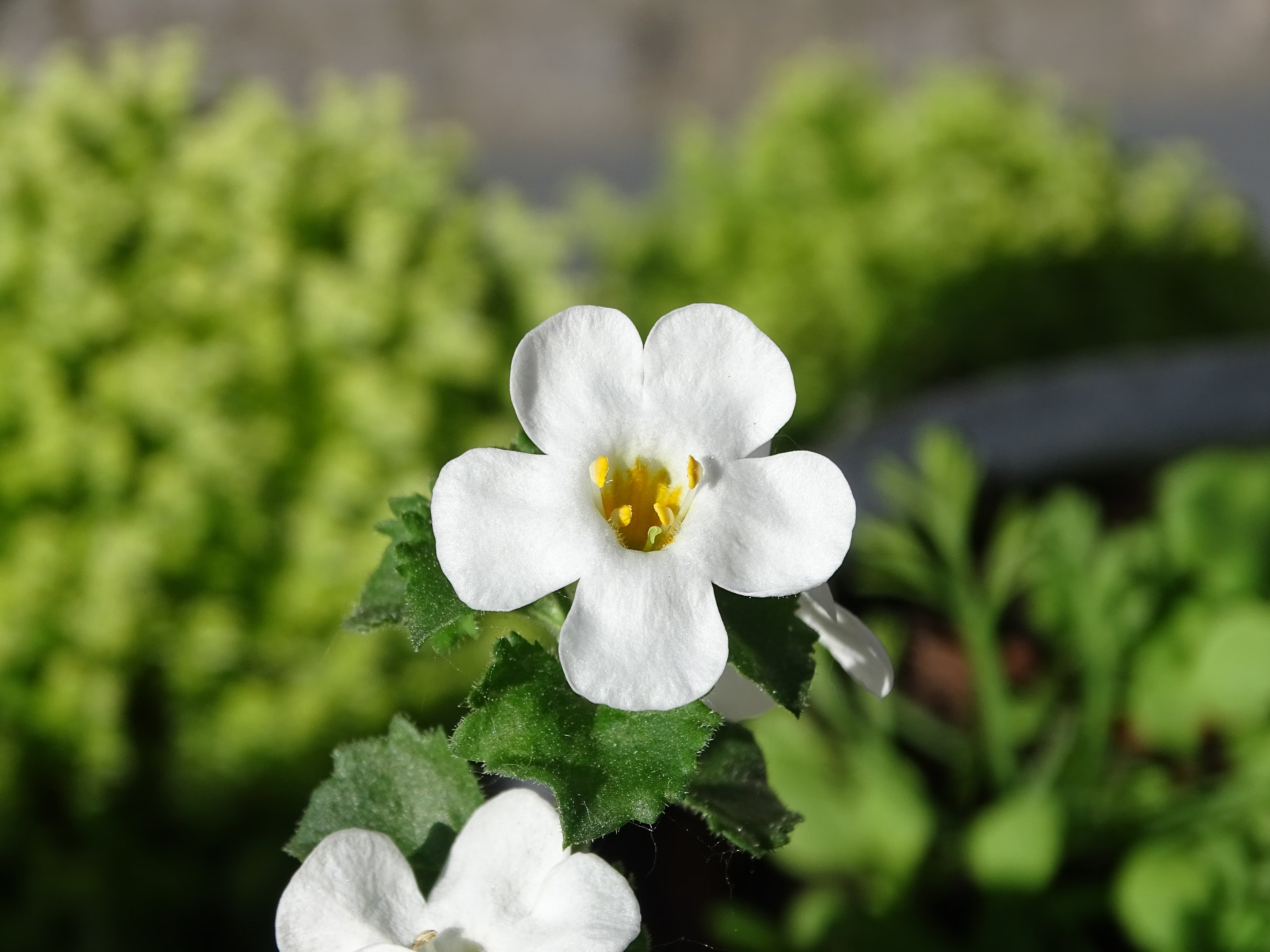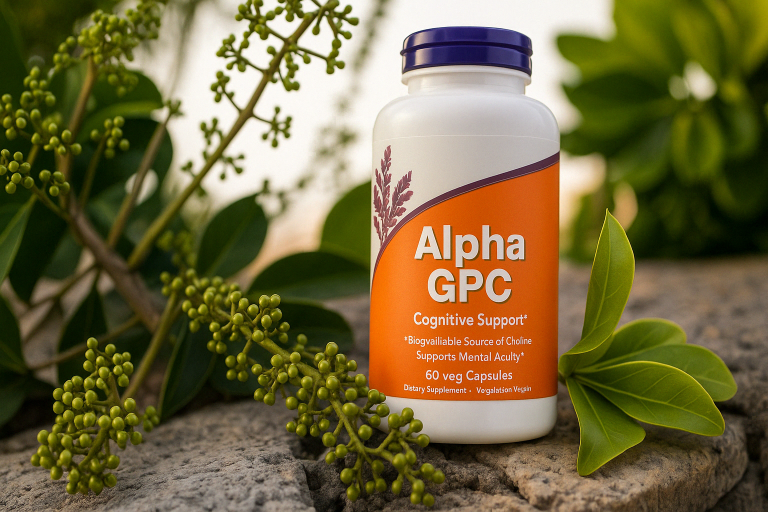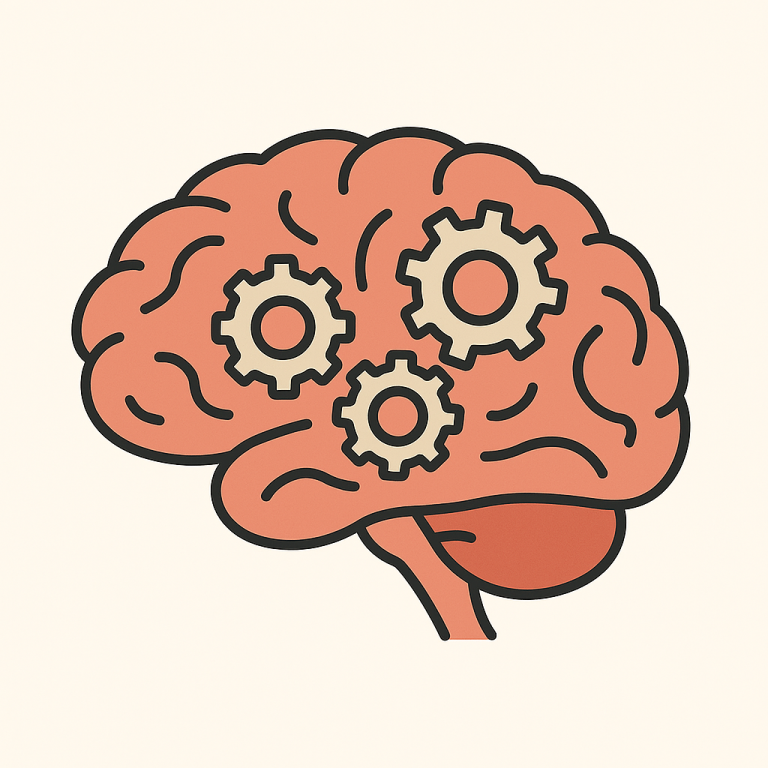Bacopa Monnieri Benefits: Enhancing Memory and Cognitive Function
Bacopa Monnieri, also known as Brahmi, is a highly regarded medicinal herb in traditional Ayurvedic medicine. This nootropic plant is celebrated for its potential to enhance memory and cognitive function.
Bacopa Monnieri may boost brain function and improve memory, which makes it an appealing option for those seeking to support their mental clarity and focus.

With roots in traditional Ayurvedic practices, Bacopa Monnieri is not just known for its memory-enhancing properties. It is also praised for its ability to reduce anxiety and support emotional well-being.
By promoting a sense of calm, it helps people manage stress effectively.
In addition to mental health benefits, Bacopa Monnieri is said to contain compounds with powerful antioxidants, which may provide anti-inflammatory effects. For those interested in holistic health approaches, this herb offers a natural way to potentially improve both the mind and body.
Understanding Bacopa Monnieri

Bacopa Monnieri, often known as Brahmi, is a perennial herb with origins in Ayurveda. It is known for its potential benefits in enhancing memory and alleviating stress. The plant goes by various names worldwide and has distinct botanical characteristics.
Historical Significance and Origin
Bacopa Monnieri, or Brahmi, has its roots in Ayurvedic medicine, an ancient practice from India. It has been used for thousands of years for its supposed ability to boost brain function and promote calmness.
Ancient texts describe its use in rituals and healing practices. The herb’s historical use spans various regions, where it played a vital role in traditional healings and medicine. Brahmi was often involved in religious ceremonies, highlighting its sacred status in historical contexts.
Botanical Description
Bacopa Monnieri is a creeping perennial herb commonly found in wetlands and marshy areas. It belongs to the Plantaginaceae family and is characterized by small, succulent leaves.
The leaves are oblong, thick, and grow opposite each other. Tiny, white flowers with five petals appear on the plant, adding to its distinctive look. The plant requires moist or aquatic environments to thrive, which is why it is common in areas like rice fields and ponds. It is known for its ability to grow in a range of climates, from tropical to temperate regions.
Common Names and Synonyms
Bacopa Monnieri is known by various names, each reflecting its unique identity in different cultures. Common names include Water Hyssop, Thyme-Leaved Gratiola, Herb of Grace, and Brahmi.
These names often hint at its physical traits or the regions where it is most commonly found. The name “Herb of Grace” emphasizes its reputed healing properties. With its many names, Bacopa Monnieri shows how widely recognized and respected it is globally as a valuable herb in traditional medicine.
Phytochemical Composition

Bacopa monnieri is a powerful herb widely recognized for its diverse phytochemicals. This rich composition contributes to its benefits, including memory enhancement and neuroprotection, mainly through active compounds such as bacosides and saponins.
Bacosides A and B
Bacosides A and B are the primary active compounds in Bacopa monnieri. These triterpenoid saponins are responsible for the cognitive-enhancing properties of the herb.
They work by boosting neurotransmitter activity, specifically acetylcholine, which is vital for memory and learning.
In addition to cognitive benefits, bacosides exhibit antioxidant properties. They help reduce oxidative stress by neutralizing free radicals, protecting brain cells from damage. They can also support mood balance by influencing serotonin levels. These compounds together contribute significantly to Bacopa’s reputation as a nootropic agent.
Saponins Content
Saponins form a substantial part of Bacopa monnieri’s phytochemical makeup. They contribute to the herb’s overall medicinal properties.
Alongside bacosides, these compounds aid in supporting cognitive health by improving brain function.
Saponins in Bacopa possess anti-inflammatory properties, which help in reducing inflammation in the brain. This, in turn, aids in protecting neurons and maintaining healthy brain function. Additionally, they can influence the regulation of neurotransmitters like gamma-aminobutyric acid (GABA), enhancing relaxation and minimizing anxiety symptoms.
Additional Bioactive Compounds
Bacopa monnieri contains other bioactive compounds that complement the effects of bacosides and saponins. These include flavonoids and alkaloids, which add to its therapeutic value.
Flavonoids provide antioxidant activities, helping to maintain cellular integrity and protect against stress-related damage.
The presence of sterol glycosides and alkaloids also plays a role in Bacopa’s benefits. By affecting nitric oxide levels, they improve blood circulation and support vascular health. These compounds collectively enhance the herb’s ability to boost cognitive performance and promote mental well-being.
Cognitive and Neurological Benefits
Bacopa monnieri has shown promising benefits in improving cognitive functions, enhancing memory, and offering protection against neurodegenerative conditions. It may also aid in managing symptoms related to Alzheimer’s disease.
Memory Enhancement
Bacopa monnieri is renowned for its potential to enhance memory. Research indicates improvements in both short-term and long-term memory, making it a popular supplement for those looking to boost their memory improvement.
It may aid in improving logical and verbal memory, which enhances a person’s ability to recall information. The herb possibly works by reinforcing neurotransmitters linked to learning and memory, thus helping with both acquisition and retention.
Studies often note significant effects on both memory acquisition and recall, suggesting its use may be beneficial for people experiencing memory loss or those who aim to improve their cognitive functions in daily activities.
Attention and Focus
The ability of Bacopa monnieri to enhance attention and focus is another attractive benefit. It is thought to improve speed of attention, allowing individuals to concentrate better and process information quicker.
This is particularly useful for tasks requiring sustained concentration and mental clarity. By supporting cognitive function, Bacopa might enhance overall mental performance.
Its calming effects can help reduce anxiety, which often interferes with a person’s ability to focus. This makes it potentially effective for improving attention in those with attention deficit issues. Regular use might lead to noticeable improvements in intellectual pursuits and daily activities requiring mental agility and sharpness.
Neuroprotective Effects
Bacopa monnieri is believed to have neuroprotective properties due to its rich content of antioxidants. These properties help in preventing neurodegenerative damage, shielding brain cells and supporting overall brain health.
The herb may work by combating oxidative stress, a factor that contributes to cognitive decline. This can help in maintaining cognition and supporting brain longevity.
Antioxidants in Bacopa can neutralize free radicals, preventing damage that might lead to cognitive and learning impairments. Such neuroprotective effects are crucial for individuals concerned about long-term brain health and the preservation of cognitive abilities as they age.
Potential in Alzheimer’s Disease Management
Bacopa monnieri shows potential in managing symptoms associated with Alzheimer’s disease and other forms of dementia. Some studies suggest that it might slow the progression of cognitive decline by enhancing memory and stabilizing mood.
The herb’s ability to improve logical memory and verbal recall can be particularly beneficial for those experiencing memory loss. It may also help in reducing feelings of anxiety and depression often linked with Alzheimer’s, thereby improving the quality of life for those affected.
These findings make Bacopa a subject of interest in ongoing research on natural interventions for Alzheimer’s disease management.
Psychological and Stress-Related Benefits
Bacopa monnieri, a traditional herb used in Ayurvedic medicine, has shown promise in managing stress and mood disorders. Its potential to reduce anxiety, improve mood, and serve as an adaptogen provides a holistic approach to mental wellness.
Anxiety and Depression Mitigation
Bacopa monnieri may reduce anxiety and depression by influencing the brain’s neurochemistry. It appears to lower levels of cortisol, a stress hormone, which can help with anxiety and depression.
Additionally, studies suggest improvements in verbal learning and memory recall, contributing to enhanced cognitive function and emotional stability.
Compounds in Bacopa monnieri, such as bacosides, are thought to support neurotransmitter activity in the brain. This impacts mood regulation and can offer calming effects similar to anti-anxiety medications.
Although more research is needed, current findings indicate that Bacopa monnieri may offer a natural alternative to traditional treatments for mood disorders.
Adaptogenic Activity and Chronic Stress
Adaptogens are substances that help the body cope with chronic stress. Bacopa monnieri is considered to have adaptogenic properties, meaning it enhances the body’s resilience to stressors.
By reducing stress-induced damage on the body and mind, it may contribute to overall well-being.
Research indicates that Bacopa monnieri can have a positive impact on emotional well-being, offering potential protection against stress-related fatigue.
Despite its benefits, it does not significantly improve sleep patterns more than a placebo, but improvements in stress responses are notable. Links between Bacopa monnieri and enhanced adaptogenic activity make it a useful addition for those dealing with persistent stress.
Other Health Benefits
Bacopa monnieri provides diverse health benefits that go beyond brain function. It supports cardiovascular health, offers antioxidant protection, and aids the respiratory system.
Cardiovascular Health
Bacopa monnieri might help improve heart health. Some studies suggest it may help lower blood pressure, which is important in managing heart disease.
Maintaining healthy blood pressure reduces stress on the heart and arteries, helping to prevent heart disease.
By promoting better blood flow, Bacopa may also help reduce the risk of other cardiovascular issues. This herb’s ability to calm the nervous system may contribute to its therapeutic potential for heart health.
While research is ongoing, early findings are promising in showing how Bacopa can be beneficial to cardiovascular wellness.
Antioxidant and Cellular Protection
This plant contains compounds that provide strong antioxidant effects. These antioxidants help neutralize free radicals, which can cause oxidative stress and damage cells.
Oxidative stress has been linked to various diseases, including heart disease and cancer.
The potential of Bacopa to protect cells from oxidative damage indicates it could play a role in overall health maintenance.
By reducing oxidative stress, Bacopa contributes positively to the body’s defense systems, potentially slowing the aging process and promoting cellular health.
Respiratory System Support
Bacopa monnieri is also known for its supportive role in respiratory health. It has historical use in treating asthma and other respiratory conditions.
Its anti-inflammatory properties may help alleviate symptoms of asthma by reducing airway inflammation.
The herb’s calming effect on the body can soothe anxiety-induced breathing issues. While not a replacement for medical treatment, Bacopa can be a supplementary support for those with mild respiratory concerns.
Bacopa Monnieri in Ayurveda and Traditional Medicine
Bacopa monnieri, often known as Brahmi in Ayurveda, is a prominent herb used for its medicinal properties. With a history of use dating back thousands of years, it is revered for supporting mental clarity and wellness.
In Ayurvedic Medicine, Bacopa is considered a brain tonic. It is used to enhance memory and cognitive function. Practitioners believe it rejuvenates the mind and helps maintain a balanced nervous system.
Traditional Medicine also values Bacopa for its versatility. It is utilized to address conditions like insomnia and anxiety.
This herb is believed to calm the mind and promote relaxation.
As a potent tonic, Bacopa is thought to enhance energy and vitality without being overstimulating. It is said to provide a gentle boost to both mental and physical health.
The nervous system benefits from Bacopa’s calming properties. It is used to reduce stress and support overall mental function, contributing to improved emotional well-being.
Bacopa is often consumed as a supplement or herbal remedy. Its leaves are used in various formulations such as capsules, powders, and extracts.
Forms and Preparations
Bacopa monnieri is available in several forms, each offering unique ways to incorporate it into one’s routine. Teas and powders provide flexible dosing options, while capsules and supplements offer convenience and consistent dosage.
Bacopa Teas and Powders
Bacopa tea involves steeping the dried herb in hot water, creating a soothing beverage. It’s a traditional method in Ayurvedic practices.
Drinking bacopa tea is said to potentially support relaxation and mental clarity. Users might enjoy the gentle flavors and the ritual of tea preparation.
The powder form is versatile and can be mixed with drinks, sprinkled on food, or taken directly. This option allows for tailored dosages, making it appealing to those familiar with bacopa usage.
The earthy taste might be an acquired one, but it offers a direct way to consume the herb’s active compounds.
Capsules and Supplements
Capsules and tablets provide a convenient and precise method of taking bacopa. They are easy to find and can be integrated into daily health routines without requiring preparation.
This form appeals to those who value simplicity and consistency in dosage.
Standardized extracts, often found in capsules, ensure specific levels of active ingredients, offering reliable intake. This form is beneficial for individuals who seek a hassle-free approach.
Availability in different strengths allows users to choose what fits their needs best.
Both forms provide great options depending on whether one seeks versatility in consumption or convenience and standardization in dosage.
Safety Profile and Side Effects
Bacopa monnieri is often used for its potential cognitive benefits, but it’s essential to understand its side effects and interactions.
Some people might experience issues like nausea or fatigue. It’s crucial for certain groups such as pregnant women or those with epilepsy to be cautious.
Bacopa may also interact with other medications and supplements, impacting their effectiveness.
Common Side Effects
Bacopa monnieri, when consumed, can lead to various digestive issues. Nausea, diarrhea, and stomach cramps are some common complaints.
These symptoms often occur within days of starting the supplement and may subside as the body adjusts.
Some individuals report a dry mouth, which can be irksome but is typically mild.
While most side effects are not serious, they can be uncomfortable. Monitoring symptoms and consulting a healthcare provider can help manage these issues effectively.
Sensitive individuals should be aware of potential fatigue after taking bacopa. Though uncommon, this can impact daily activities. Experimenting with dosage, under guidance, can sometimes mitigate these effects.
Precautions for Special Populations
Pregnant and breastfeeding women should exercise caution with bacopa due to limited research on its safety during these periods. The potential impact on fetal development or lactation is not well-documented, emphasizing the need for professional advice.
Patients with epilepsy or a history of seizures should consult their doctor before using bacopa, as it may influence seizure threshold.
Additionally, those with liver conditions must be cautious, given the liver’s role in metabolizing supplements.
Children, particularly those diagnosed with ADHD, may experience different side effects, so parental supervision and medical consultations are advised.
Users should consider potential contaminants like lead or mercury in some formulations, opting for products that meet FDA standards.
Interactions with Medications and Supplements
Bacopa can interact with certain medications, altering their effects.
People on thyroid hormone medications should be wary, as bacopa may affect thyroid activity. Additionally, those with anemia need to exercise caution due to potential interactions with iron-related supplements.
Other drugs used for managing epilepsy might be impacted by bacopa, necessitating careful monitoring for any changes in seizure control.
Keeping informed about these interactions and discussing them with healthcare professionals can reduce risk.
It’s also suggested to consider the effect of bacopa on DNA repair or synthesis processes, as its impact in these areas is not entirely understood.
Consulting with a health expert helps individuals make informed decisions about combining bacopa with other treatments or supplements.
Scientific Research and Studies
Bacopa monnieri is known for its potential nootropic and neuroprotective effects. This section explores how scientific research supports its use, highlighting clinical trials and comparisons with other nootropics.
Clinical Trials and Efficacy
Clinical trials on Bacopa monnieri reveal its promising potential in enhancing cognitive function. Various studies suggest it may improve memory and attention, particularly in healthy adults.
For example, its ability to enhance memory processing has been linked to its role in increasing acetylcholine, an essential neurotransmitter for learning.
The herb has shown efficacy in reducing anxiety, potentially making it a valuable anxiolytic.
These trials often examine its long-term effects on brain health, with some participants reporting improvements in markers of oxidative stress, which can protect against cognitive decline.
Comparative Studies with Other Nootropics
Comparative studies analyze Bacopa monnieri alongside other nootropics like Gotu Kola.
In these studies, Bacopa often stands out due to its potent antioxidant properties, which help counteract oxidative damage. Unlike some nootropics, it has shown fewer side effects and is considered safer for extended use.
Bacopa has been compared with traditional treatments for cognitive issues, such as those used in Ayurvedic medicine. Studies indicate it can be as effective as these traditional methods in some areas, offering an alternative or complementary approach to cognitive enhancement and protection against conditions like Alzheimer’s disease.
Results from these comparisons suggest a unique efficacy of Bacopa in improving overall cognitive health.
Global Use and Cultivation
Bacopa monnieri, also known as brahmi, is cherished for its health benefits and is cultivated worldwide. Known for enhancing memory and reducing anxiety, it holds a significant place in various traditional medicines. This section explores its cultivation in different regions and its traditional uses.
Cultivation Around the World
Bacopa monnieri thrives in warm, tropical climates. It is commonly found in wetlands across South America, Asia, and Africa.
In these regions, the plant is valued not only for its medicinal properties but also for its adaptability to various growing conditions.
Farmers usually cultivate Bacopa in fields with ample water supply, as the plant grows best in moist, soggy environments.
In India, both small-scale farmers and commercial growers cultivate it for use in Ayurvedic medicine.
Beyond its native habitats, Bacopa is also grown in home gardens worldwide. Gardeners appreciate its trailing habit and small, white flowers.
The plant is often grown in pots, ponds, and alongside other herbs. This adaptability makes it a popular choice for those interested in natural remedies and herbal gardening.
Uses in Various Cultures
Bacopa monnieri is an integral part of Traditional Ayurvedic Medicine. In India, practitioners use it to support cognitive health, improve memory, and reduce stress.
The plant’s use in Ayurveda highlights its relevance in maintaining mental clarity and balance.
In the West, Bacopa is gaining popularity as a supplement for memory enhancement. People use it to support mental function and reduce stress.
The plant is often available in capsule and powder forms in health food stores.
In Africa and South America, Bacopa is a part of local medicine and is sometimes used to promote skin health and healing. Its anti-inflammatory properties make it useful in soothing skin conditions.
These varied uses highlight Bacopa’s global significance and cultural adaptation.






